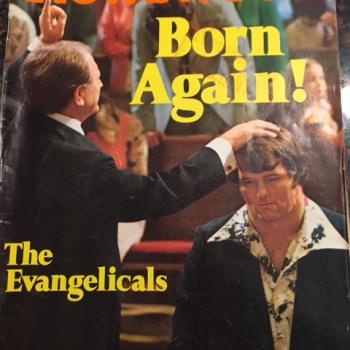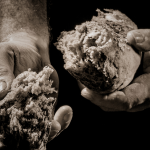The first year was brutal, at times almost unendurable.
Wherever he went the grandstands were filled with the hateful, angry voices of boorish louts screaming nasty threats and accusations. To the mob he represented, somehow, everything they hated. His very presence there was a reminder that the thing they most feared and despised was happening whether they liked it or not.
Truth be told, the angry mob had gone crazy. It hadn't so much lost its mind as surrendered it, giving itself over to the worst of its frightful passions, acting contemptibly while desperately pretending to one another that their shameful behavior was cause for pride.
The opposing teams had gone crazy too, tossing out the rule book when it came to this man they viewed as an illegitimate intruder, as someone they vowed would never be allowed to belong, never be given a fair chance to do what he'd been called on to do. They hoped to see him fail and so they played dirty — spiking, beaning, tripping, spitting — what would once have been unthinkable became routine. And like the mob in the stands, they took pride in what was shameful, congratulating one another on their despicable achievements.
The low point in that first year came in Cincinnati. That was where he almost cracked.
He'd made a promise when he took the job, a promise not just to Mr. Rickey, but to everyone else who was counting on him — to all those who might one day follow because he'd had the strength to lead. He had promised that no matter how bad it got, he wouldn't let it get to him. He had promised that he wouldn't respond, that he wouldn't let the righteous and rightful anger show. He just had to take it. That wasn't fair or just or right or easy, but that's what it meant to be first.
He'd kept that promise, too. But there, in Cincinnati, he came as close as he'd ever come to collapsing under all those promises to history and legacy, collapsing under the weight of superhuman expectations and of always having to be a symbol instead of just a man doing a job he was good at.
And that's when the captain stepped in, walking over from short to stand next to him and to stand with him.
You know the story — heck, they made a statue of it. "Pee Wee kind of sensed the sort of hopeless, dead feeling in me and came over and stood beside me for a while," he said. And his shoulders straightened under the little man's arm and the hateful mob was never really able to get to him again.
That's the legend, no less legendary just because it actually happened.
But I suspect there's more to the story, another chapter that's never been told. Something a bit more, well, Brooklyn.
This was a game with a code, after all, a set of scrupulously followed unwritten rules demanding a protective response — what umpires warn against these days as "retaliation." And if that response couldn't be made on the field, in uniform, then it might have come off the field, in a dark corner of the parking lot or a nearby alley or bar or some other place where you really wouldn't want to find yourself on the wrong side of a bunch of large, angry men with names like Duke and Spider who were relishing the fact that they were not restrained by any promises to the boss or obligations to history.
None of those players has spoken of such a moment. And the racist hooligans, once so proud of themselves, have quietly skulked away hoping to hide in anonymity. So we never heard such a story from them either.
But what we do know is this: Things were never again quite so bad for him in Cincinnati. The loud and hateful voices in the cheap seats didn't go away entirely, but they were quieter and less boldly vicious.
I'd like to think that the legendary moment of solidarity alone could account for that — that some kind of Gandhian magic overcame the hatred and exposed the ugliness of the vicious lies, transforming hardened hearts. But given what I've seen of human nature, I would guess there had to be more to it than that.
I would guess that beautiful moment must also have been followed up by a bit of hardball — by a tangible reminder that cheating and lying and bestial, abhorrent, imbecilic behavior has consequences. By a vivid reminder that those who take pride in what is shameful will be called to account.
The necessity of such a reminder, I think, is an important part of the lesson of that first brutal year.












